
HIV or human immunodeficiency virus, is the virus that causes AIDS. Acquired immunodeficiency syndrome or AIDS a disease in humans in which a person\'s immune system begins to deteriorate and becomes susceptible to infections.
At first, if a person becomes infected with HIV, he or she does not necessarily notice any symptoms, or seems to may have caught minor flu. These early symptoms include headache, sore throat, swollen lymph glands and fever. Although it is not obvious a person is infected with HIV virus, he or she may transfer it to others, usually through semen, vaginal fluid, blood or breast milk. As soon as the person is infected, his or her immune system begins to fail because the virus attacks lymphocytes, the white blood cells that help the body fight against infections.
The flu-like symptom may remain the only symptom for eight or nine years, and during that time the virus multiplies and the body develops other infections or symptoms such as diarrhea, fever, weight loss, swollen lymph nodes, cough, etc.
In the last stage of HIV, and it is roughly ten years after a person got infected, the person develops more serious symptoms and the infection then causes AIDS. In the phase when a person\'s body develops AIDS, his or her immune system is already significantly impaired and the person is at risk of developing opportunistic infections. There are many signs and symptoms that a person has developed AIDS. Some of them are excessive perspiration, fever which continues for weeks, headaches, chronic diarrhea, cough and shortness of breath, impaired vision, loss of weight, continuous fatigue, swollen lymph nodes, etc.
There is a risk that a person infected with HIV develops certain kinds of cancers, but with advances in research and medicine, there are now treatments that reduce the risk of these kinds of cancers developing.
As well as the adults, children too are at risk of getting infected with HIV. Infected children have somewhat different symptoms than adults. They include problems with growth, problems with gaining weight, problems walking, impeded mental development. Since their immune system begins to fail after getting infected, common childhood illnesses such as ear infection, tonsillitis and pneumonia appear in their worst forms.
People are advised to do the test for HIV if they engage in risky behaviors. These behaviors include sex without protection and intravenous drug use with a shared needle. Early testing is important for the person because he or she will start treating the virus on time, but for other people in the environment as well, who can be more careful not to get infected. Tests are free of charge and confidential. Names and results are used only by medical staff and for the purpose of stopping the virus from spreading.



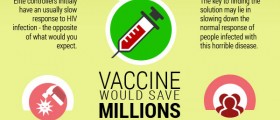

_f_280x120.jpg)
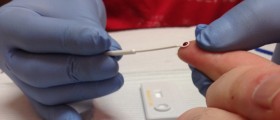
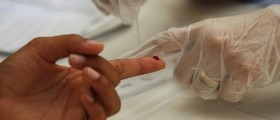

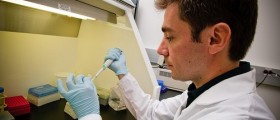






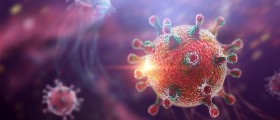
Your thoughts on this
Loading...